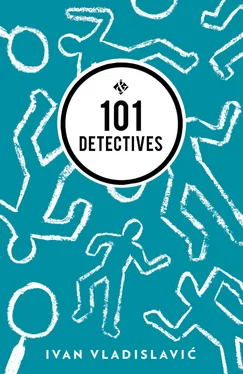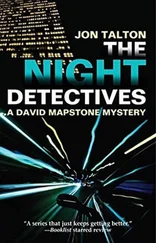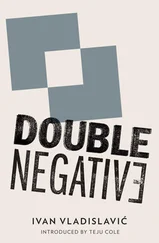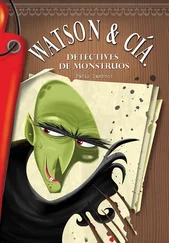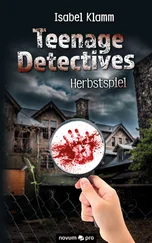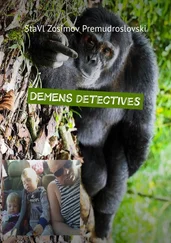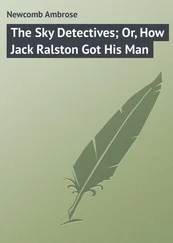Ivan Vladislavic - 101 Detectives
Здесь есть возможность читать онлайн «Ivan Vladislavic - 101 Detectives» весь текст электронной книги совершенно бесплатно (целиком полную версию без сокращений). В некоторых случаях можно слушать аудио, скачать через торрент в формате fb2 и присутствует краткое содержание. Год выпуска: 2015, Издательство: And Other Stories Publishing, Жанр: Современная проза, на английском языке. Описание произведения, (предисловие) а так же отзывы посетителей доступны на портале библиотеки ЛибКат.
- Название:101 Detectives
- Автор:
- Издательство:And Other Stories Publishing
- Жанр:
- Год:2015
- ISBN:нет данных
- Рейтинг книги:4 / 5. Голосов: 1
-
Избранное:Добавить в избранное
- Отзывы:
-
Ваша оценка:
- 80
- 1
- 2
- 3
- 4
- 5
101 Detectives: краткое содержание, описание и аннотация
Предлагаем к чтению аннотацию, описание, краткое содержание или предисловие (зависит от того, что написал сам автор книги «101 Detectives»). Если вы не нашли необходимую информацию о книге — напишите в комментариях, мы постараемся отыскать её.
and
, invites readers to do some detective work of their own. Each story can be read as a story, but many hide clues and patterns. Whether skewering extreme marketing techniques or constructing dystopian parallel universes, Vladislavic will make you look beyond appearances.
101 Detectives — читать онлайн бесплатно полную книгу (весь текст) целиком
Ниже представлен текст книги, разбитый по страницам. Система сохранения места последней прочитанной страницы, позволяет с удобством читать онлайн бесплатно книгу «101 Detectives», без необходимости каждый раз заново искать на чём Вы остановились. Поставьте закладку, и сможете в любой момент перейти на страницу, на которой закончили чтение.
Интервал:
Закладка:
The gondola bearing our disappointing Kafka rolled onwards, unable to change a thing about itself, but effecting a magnificent transformation in its wake. Spring-loaded thorn trees sprang upright, a ballooning sun rose to the end of its tether, the mist dissolved. Leopards and impalas and monkeys skipped out of the cardboard bushveld. The victims came out of their shells too, as the sacrificial columns sank down to earth, and joined the dance of life. There was Natalie, unfurling her wings.
While the bushveld bloomed, the gondola bearing Kafka arrived at the last remnant of Prague, a sooty archway in another distant corner, and passed through unhindered, dragging away the tail end of the twilight. When the steersman snuffed his lamp, the parade of the wild animals began. It was a relief to find oneself back in Africa.
Yet this is not the summit either! The show goes on. The animals prance, and pose, and prance again, and depart. The new Ford Kafka remains at centre stage. The revolving platform has restored it to its original shape, levelled at us. For some time, it stands there without moving. Then the platform tilts and the car rolls off it, bursting through its wrapping into a state of gleaming certitude, bearing down upon us. Those at the back feel safe, of course, but some in the ringside seats start up in alarm. Then we all see that we have no reason to be afraid, there is a young man at the wheel, smiling pleasantly and waving, and he guides the car expertly between the tables. He is an actor too, Natalie says, and made a name for himself playing a political prisoner. It was a daring bit of casting, even by today’s standards. In the passenger seat, letting her hair down and tossing away the hat, so that we cannot fail to identify her, is our Kafka. Now that I see her properly, I recognise her from the TV. At the sight of her plump cheeks, I imagine Kafka, in the final days of his consumption, and my heart goes out to him.
The car comes to a halt in our midst and everyone has to get up to see what’s happening, creating the impression of a standing ovation. At which point the lights come up and the waiters move in with the main course: beef.
III
The most remarkable thing about the new Ford Kafka, as I discovered when I took a closer look at it after the dessert, was that it was not black, as I had supposed, but blue. Midnight blue, Mr Bruintjies said. Even the puffiness of the leather seats, which I had never seen the likes of before, was apparently quite normal, just another ‘style’. I walked around the vehicle several times, but failed to find it as impressive as I’d hoped. I even queued to sit behind the wheel. It smelt good, I confess; it smelt healthy and prosperous. I breathed in the aroma, twiddled a few buttons, expecting something unpleasant to happen. And then all at once I was seized by the language of the motoring press. The bucket seat embraced me assertively. The gear lever became stubby and direct. The dashboard looked clean, the instrumentation unfussy. Gazing through the windscreen, I found that the bonnet had lost its Semitic curve and now looked nothing but businesslike. I gripped the steering wheel in the requisite ten-past-two formation. Or was it the five-past-one? What do I care? I could have sat there forever, with the Kafka logo floating between my wrists. But the queue was restless.
When I returned to my seat, an informal atmosphere had settled over the table. Mr Rosen had taken off his jacket, unselfconsciously exposing a pot belly and braces, and put on his commemorative cap, with the peak turned to the back. Mr Madondo was wearing Dr Immelman’s hat. Apropos of the leopard-skin band, Mr Madondo declared that the next time the invitation said ‘traditional’ he was going to come in skins. Everyone laughed. There followed a diverting discussion about the value of tradition. After a while, I steered the conversation back to the new Ford Kafka — I was keen to get my companions’ impressions. Mr Bruintjies was the dark horse: so great was his admiration for the marque, he had ordered the new model months before, sight unseen. It also emerged that Ms Leone Paterson had designed some aspect of the invitation-key, and she promised to send me one ‘for my portfolio’.
I was by no means the first to leave. I had passed a pleasant evening, as I assured the company when we parted. But the moment I was alone, a mood of tense despair descended upon me.
In the lobby, heading for the shuttle bus, I remembered the lapel badges. The table was against the wall near the cloakrooms. There were several dozen badges no one had collected, a roll call of the missing — a Mr Ringwood, a Mrs Foote, me. And yet here I was, as large as life, a walking contradiction. On an impulse I swept the badges into my goodie bag and hurried away.
One day, the opportunity to test-drive the new Ford Kafka might present itself; for the time being, I will have to make do with a second-hand Mazda Midge. Before driving off, I took out a handful of the lapel badges and studied them again. Whereas the new Ford Kafka has a reading-light in the ceiling just like an aeroplane, the Mazda Midge has a little bulb you can hardly read a map by. I could make out Mr and Mrs Granger, a Mrs A. Chopho, a B. Capstine, a Mulligan. Unknown factors. Kafka’s face, looking back at me from every badge, should have been a consolation. And yet it was as strange, as remote and inhuman in its familiarity, as Colonel Sanders.
I took the M1 South. As soon as I found myself in the fast lane, I began to speed. I wound down the window so that the wind could tear through me and pressed the accelerator flat. There was music in my head, a relentless droning I had never heard before but knew by heart, the soundtrack of industrial theatre. I let the car float to the left of the lane until the wheels on that side were thumping over the catseyes on the dotted line, and this gave the music a driving rhythm and made me go even faster. The towers of Johannesburg rushed closer. I drifted, I could hardly remember it afterwards, and all the time I was turning the names of the absentees over in my mind, as if they were members of one broken family, and wondering what, if anything, could be done about them.
Dead Letters
NEVILLE LISTER
Neville Lister, b. 1962, Johannesburg. Commercial photographer (mainly advertising: ‘nation-building epics’, magazine features, property portfolios). Recently some exhibited work. Contact: Claudia Fischhoff, Pollak Gallery, Johannesburg
Neville Lister grew up in Johannesburg and studied at the University of the Witwatersrand without completing a degree. He left South Africa in the early 1980s and lived for a decade in London, where he began his photographic career as a location scout. After assignments for department-store catalogues, property portfolios and ‘everything in between’, he found a niche in the women’s magazine market.
Soon after South Africa’s first democratic election in 1994, Lister returned to Johannesburg to pursue his commercial work. In the early 2000s, he began to photograph on his own account, although it was some years before he exhibited or attracted critical attention. His photographs of walls appeared in the Public][Private group show at the Switch Box in 2008; and his Thresholder series, portraits of people with their letterboxes, was shown at the Pollak Gallery the following year. At this time, he was mentored by renowned photographer Saul Auerbach.
Lister’s current project involves a cache of undelivered letters that once belonged to a Dr Pinheiro, a medical doctor who sought refuge in South Africa after the 1975 revolution in Mozambique. Unable to practise without the proper certification, Dr Pinheiro found work in the sorting room at Johannesburg’s Jeppe Street Post Office. Here he came into possession of the ‘dead letters’, various items of mail intended for people in the city but never delivered because the addresses were incomplete or indecipherable. Lister acquired the letters in turn shortly after his relocation from London. For many years, he was unsure what to make of them and could not bring himself to open the envelopes.
Читать дальшеИнтервал:
Закладка:
Похожие книги на «101 Detectives»
Представляем Вашему вниманию похожие книги на «101 Detectives» списком для выбора. Мы отобрали схожую по названию и смыслу литературу в надежде предоставить читателям больше вариантов отыскать новые, интересные, ещё непрочитанные произведения.
Обсуждение, отзывы о книге «101 Detectives» и просто собственные мнения читателей. Оставьте ваши комментарии, напишите, что Вы думаете о произведении, его смысле или главных героях. Укажите что конкретно понравилось, а что нет, и почему Вы так считаете.
